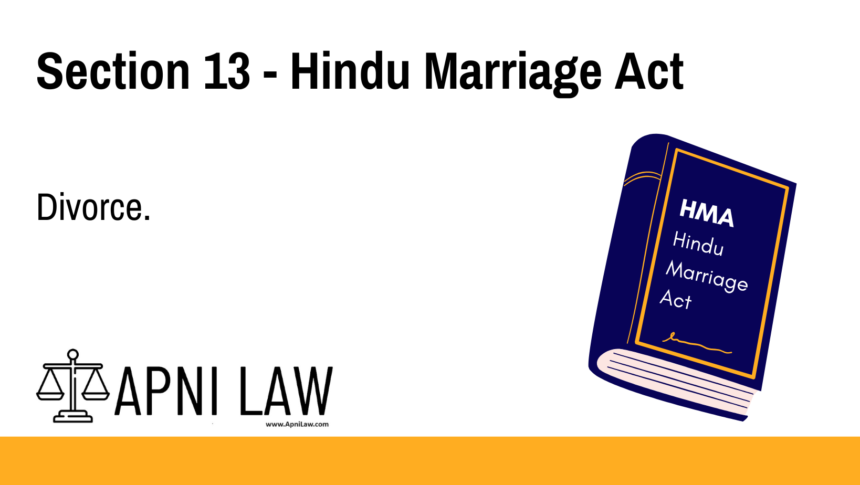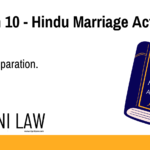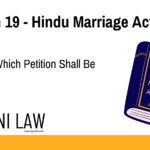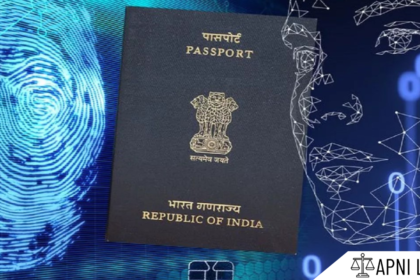Code: Section 13 – Hindu Marriage Act, 1955
Section 13 of the Hindu Marriage Act, 1955 provides the legal grounds for divorce. It allows either spouse to end the marriage through a court decree under certain conditions.
Section 13(1): A marriage can be dissolved by a decree of divorce on the following grounds:
- The other spouse has committed adultery (voluntary sexual intercourse with someone else).
- The other spouse has treated the petitioner with cruelty.
- The other spouse has deserted the petitioner for at least two years.
- The other spouse has converted to another religion and is no longer a Hindu.
- The other spouse is suffering from a serious and incurable mental disorder.
- The other spouse has leprosy in a severe and incurable form.
- The other spouse has a communicable venereal disease.
- The other spouse has renounced worldly life and joined a religious order.
- The other spouse has not been heard from for at least seven years.
Section 13(1-A): Either spouse may also file for divorce if:
- There has been no resumption of cohabitation for one year after a judicial separation decree.
- There has been no restitution of conjugal rights for one year or more after a court decree.
Section 13(2): A wife can also seek divorce on special grounds, including:
- The husband had another wife living at the time of marriage.
- The husband has committed rape, sodomy, or bestiality after marriage.
- The husband has failed to comply with a court order for maintenance, and the couple has not resumed living together.
- The wife was under 15 years old at the time of marriage and repudiated the marriage before turning 18.
Related: Section 13-B – Divorce by Mutual Consent
—
Explanation of Section 13 – Understanding Divorce under Hindu Law
Section 13 gives spouses the right to legally end a marriage when it has broken down due to specific reasons. These reasons may relate to behavior (like cruelty or adultery), health (such as incurable mental illness), or personal choices (like converting to another religion or renouncing the world).
Divorce may also be granted when the marriage is no longer functional. This includes situations where spouses have been separated for over a year despite previous court orders like judicial separation or restitution of conjugal rights.
Wife’s Special Rights under Section 13(2)
The law recognizes additional rights for women. If a husband had another wife living at the time of marriage, the woman may seek divorce. The law also helps women in situations involving abuse, sexual crimes, or abandonment. If a woman was married as a child, she can repudiate the marriage before age 18.
—
Illustration
Let’s explore a few practical examples:
Example 1: Adultery as a Ground
A man learns that his wife had a relationship outside marriage after they were married. He can file for divorce under Section 13(1)(a).
Example 2: Desertion
A woman’s husband left her two years ago without contact or support. She may file for divorce on the ground of desertion under Section 13(1)(c).
Example 3: Conversion to Another Religion
If a spouse converts to another religion, the other spouse may seek divorce under Section 13(1)(d).
Example 4: Mental Illness
A person whose spouse is diagnosed with a serious and incurable mental disorder that affects daily life may seek divorce under Section 13(1)(e).
—
Common Questions and Answers on Section 13
Can both husband and wife seek divorce under this section?
Yes. Section 13(1) and 13(1-A) apply equally to both spouses. Section 13(2) provides extra protection for women in certain situations.
What is the difference between judicial separation and divorce?
Judicial separation allows spouses to live apart without ending the marriage. Divorce legally ends the marriage and allows both individuals to remarry.
Is adultery a crime?
No. Adultery is no longer a criminal offence in India, but it remains a valid ground for divorce under Section 13(1)(a).
Is there a time limit for filing for divorce?
Yes. For grounds like desertion or separation after a decree, a minimum period of one or two years is usually required.
Can a marriage be ended by mutual consent?
Yes. Section 13-B of the Hindu Marriage Act allows divorce by mutual consent if both spouses agree and have lived apart for at least one year.
—
Conclusion
Section 13 of the Hindu Marriage Act provides a clear legal pathway for ending a marriage when serious problems arise. Whether it’s cruelty, mental illness, desertion, or conversion, the law empowers individuals to move on with dignity and legal protection.
If you are considering divorce or need advice on your rights under Hindu marriage law, consult an experienced family law advocate. For reliable legal content and support, visit ApniLaw.








